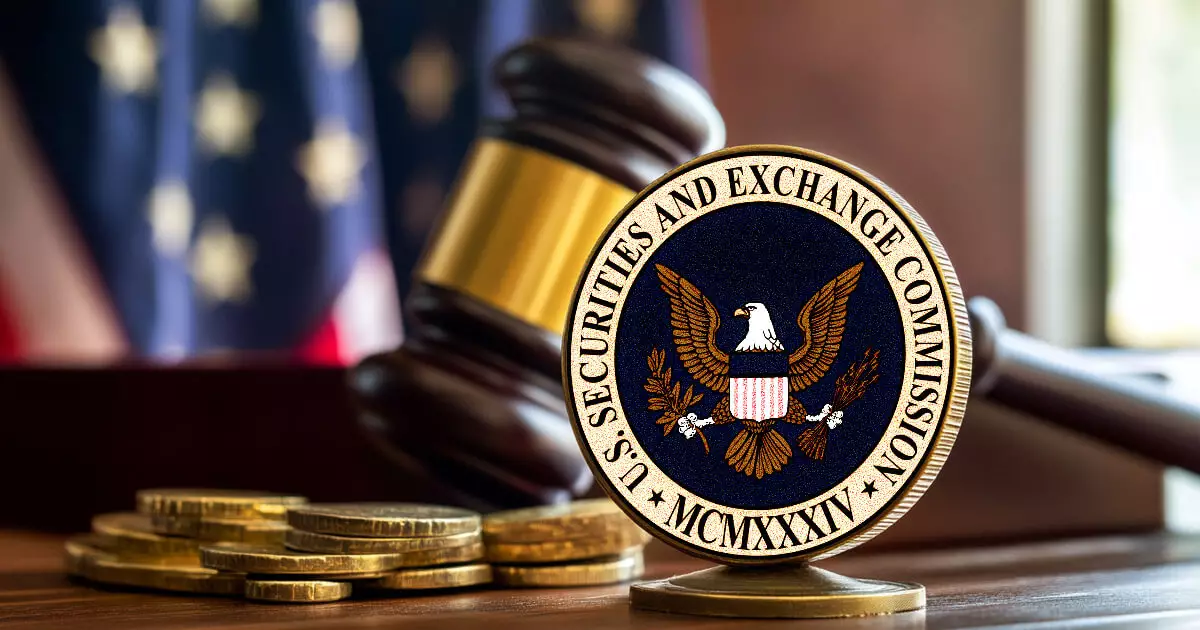On October 10, the Securities and Exchange Commission (SEC) initiated significant regulatory action against Cumberland DRW, a notable player in the crypto market based in Chicago. The allegations include operating as an unregistered securities dealer, a charge that carries serious implications for the future of cryptocurrency trading and market-making within the United States. This enforcement action has awakened discussions about regulatory compliance in an industry known for its rapid evolution and often nebulous legal framework.
According to the SEC, Cumberland has been involved in trading over $2 billion in crypto assets that fall under the classification of securities since March 2018. The crux of the SEC’s complaint hinges upon the assertion that Cumberland conducted these trades through their platform, Marea, and via telephone, thereby infringing on federal securities laws that are designed to safeguard investors. Jorge G. Tenreiro, the acting chief of the SEC’s Crypto Assets and Cyber Unit, emphasized that all dealers in securities, regardless of the underlying asset’s nature, must register with the SEC. His remarks underscore the notion that the regulatory framework applies equally to traditional financial markets and the nascent crypto space.
Cumberland has positioned itself as a pivotal liquidity provider within the cryptocurrency market, maintaining that many tokens should be classified as commodities rather than securities. This classification debate is central to the ongoing discourse surrounding cryptocurrency regulations. Tenreiro countered these assertions by pointing out that Cumberland treated their transactions as securities, thereby making registration critical for investor protections. This clash between the crypto community’s perception of asset classification and regulatory expectations tells a larger story about the complexity of ensuring investor safety in an uncharted market environment.
Following the accusations, the SEC is seeking several forms of relief, including cessation of Cumberland’s trading practices, recovery of alleged unlawful profits, and imposition of civil penalties. This case not only reflects the SEC’s determination to enforce compliance but also sets a potential precedent that could affect other firms operating within the crypto ecosystem. The outcome may influence how cryptocurrency transactions are documented and classified, potentially reshaping the operational landscape for market makers.
In a public statement, Cumberland lobbied back against the SEC’s claims, framing the enforcement action as a threat to innovation in the cryptocurrency space. The firm maintains that it will continue its operations unchanged, bolstered by a robust compliance framework, despite the fluctuating nature of regulatory theory surrounding digital assets. They asserted that their broker-dealer registration obtained in 2019 under the guidance of SEC Chairman Gary Gensler was intended to legitimize their activities, though they noted that this license was specifically restricted to Bitcoin and Ethereum exchanges.
Cumberland has claimed it has engaged in ongoing discussions with SEC officials for nearly five years, sharing operational details and maintaining transparency. The firm’s assertion that this legal action represents the first explicit detailing of the transactions in question raises eyebrows regarding the clarity and consistency of regulatory communication regarding crypto assets.
Adding another layer to the case, the SEC’s complaint makes references to previous market manipulation charges filed against DRW by the Commodity Futures Trading Commission (CFTC) back in 2013. That case eventually concluded with a ruling that favored DRW, stating that the CFTC failed to substantiate its claims. This past interaction suggests a complicated landscape where regulatory bodies are still finding their footing within the rapidly evolving crypto markets.
As of now, Cumberland holds a significant portfolio, with over $81.5 million in crypto assets, and a diverse range including Bitcoin, Ethereum, and various stablecoins. These holdings strengthen the company’s position in the industry, yet they also place it under greater scrutiny as regulators assess the internal practices and compliance levels of market players.
The SEC’s charges against Cumberland DRW have ignited a vital discourse regarding the regulation of cryptocurrency markets. As the industry seeks legitimacy, firms must navigate the complex dynamics of compliance while also advocating for favorable regulatory frameworks. The unfolding of this legal battle will likely play a key role in shaping the future landscape of cryptocurrency trading and its intersection with traditional financial regulation. The outcome may well dictate how innovation and regulatory oversight coexist in the quickly shifting realm of digital finance.



Leave a Reply